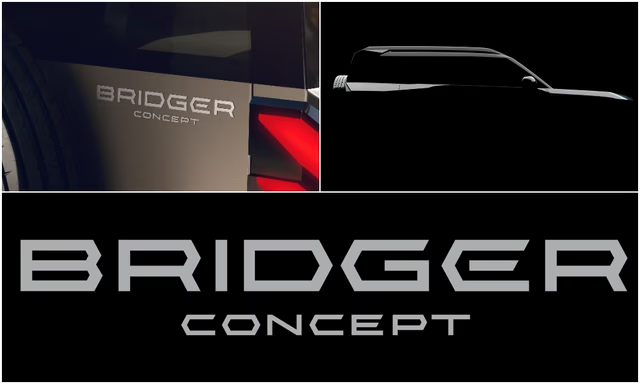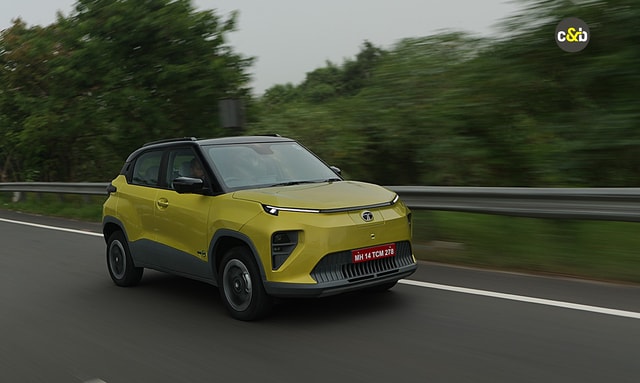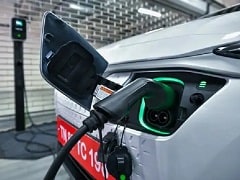Indian Carmakers Agree To Potential Import Tax Elimination In Trade Deal With Britain

- Phased Reduction: Indian carmakers propose gradually reducing import taxes on vehicles from Britain over a five-year period, aiming for a 10% tax rate.
- Limited Quota: The reduced tax rate would apply to a maximum of 46,200 vehicles, with the possibility of additional cuts based on import growth
- Departure from Protectionism: Indian car manufacturers' proposal signals a shift from their historically protectionist stance, opening up India's market to foreign automakers
Indian carmakers have reportedly agreed to eliminate import taxes on a limited number of vehicles as part of a trade deal with Britain, potentially providing improved access to India's significant automobile market. The proposal, seen by Reuters, suggests a phased reduction of import taxes from the current rates of 70% and 100% to 10% by the fifth year. However, this reduced rate would only apply to a maximum of 46,200 vehicles. The document also indicates that in negotiations, a fallback option of 0% import tax could be acceptable if deemed necessary.
Import Tax Reduction Proposal:
The Society of Indian Automobile Manufacturers (SIAM), representing prominent Indian car manufacturers such as Maruti Suzuki, Tata Motors, and Mahindra & Mahindra, submitted the proposal to the Indian commerce ministry. In addition to the limited quota, SIAM also suggested a 30% import tax reduction on cars over a ten-year period. It further expressed openness to exploring additional cuts after the fifth year based on the growth of overall imports from Britain.
Market Context and Impact:
India has traditionally been known for its high import taxes, making it one of the most protected automobile markets globally. The proposed reduction in import taxes aims to open up the Indian market, although experts argue that the limited number of vehicles covered under the scheme may have minimal impact. Notably, India recorded a remarkable 4 million car sales in the last fiscal year (ending March 31, 2023). SIAM's zero-duty proposal is limited to 26,400 cars in the first year, gradually increasing to a maximum of 46,200 cars over a decade.
Industry Concerns and Background:
The reduction in import taxes marks a departure from the historically protectionist stance of Indian car manufacturers. Previously, these companies contended that lowering import taxes would discourage domestic manufacturing and make imports more appealing to global automakers. Concerns were also raised about potential implications for negotiating deals with other countries, such as the European Union, Japan, or South Korea. Notably, companies like Tesla had to revise their entry plans into India due to the existing high import taxes.
Britain's Car Manufacturing Landscape:
Britain possesses a limited number of car factories operated by companies like Nissan, BMW, and Tata's Jaguar Land Rover. While SIAM's proposal for zero duties is more focused on cars with smaller engines, it could potentially benefit manufacturers such as Nissan in particular.
Trade Deal Negotiations and Future Outlook:
This represents the first instance of Indian carmakers conceding to import tax cuts, responding to pressure from the Indian government to relinquish their protectionist position. The concern remains that this move might set a precedent for future trade negotiations with other countries. India and Britain initiated trade pact negotiations in January of the previous year, aiming to double trade to $100 billion by 2030. However, they missed the initial deadline in October 2022 and continue to engage in discussions to finalize the proposed deal.
With inputs from Reuters
Written by Aaryan Sonsurkar
Latest News
 car&bike Team | Mar 4, 2026Kawasaki Patents Modular Electric Motorcycle PlatformWhile the concept of one chassis and multiple powertrains isn’t particularly new, it will allow for simplified production and pass savings onto the consumer.2 mins read
car&bike Team | Mar 4, 2026Kawasaki Patents Modular Electric Motorcycle PlatformWhile the concept of one chassis and multiple powertrains isn’t particularly new, it will allow for simplified production and pass savings onto the consumer.2 mins read car&bike Team | Mar 4, 2026Jetour T2 SUV Design Patent Registered In IndiaA design patent linked to a Jetour T2-based SUV has surfaced in India, hinting at JSW Motors’ upcoming entry into the passenger vehicle market.2 mins read
car&bike Team | Mar 4, 2026Jetour T2 SUV Design Patent Registered In IndiaA design patent linked to a Jetour T2-based SUV has surfaced in India, hinting at JSW Motors’ upcoming entry into the passenger vehicle market.2 mins read Seshan Vijayraghvan | Mar 4, 2026Next-Gen Hyundai i20 Spy Photos Give Glimpses Of Its Updated CabinThe cabin of the new Hyundai i20 will take inspiration from the new Venue’s interior.1 min read
Seshan Vijayraghvan | Mar 4, 2026Next-Gen Hyundai i20 Spy Photos Give Glimpses Of Its Updated CabinThe cabin of the new Hyundai i20 will take inspiration from the new Venue’s interior.1 min read Amaan Ahmed | Mar 4, 2026Renault Bridger Sub-4M SUV Concept Confirmed: 'Mini Duster' To Be Previewed On March 10Adopting a two-pronged strategy for India's incredibly competitive subcompact SUV market, Renault will take the wraps off a boxy, upright SUV concept that's expected to coexist with the Kiger.3 mins read
Amaan Ahmed | Mar 4, 2026Renault Bridger Sub-4M SUV Concept Confirmed: 'Mini Duster' To Be Previewed On March 10Adopting a two-pronged strategy for India's incredibly competitive subcompact SUV market, Renault will take the wraps off a boxy, upright SUV concept that's expected to coexist with the Kiger.3 mins read Bilal Firfiray | Mar 4, 2026Honda City, Elevate, And Amaze Available With Huge Discounts In MarchUpto Rs 1.97 lakh benefit on the City and Elevate, while both the old-gen and new-gen Amaze are available with a discount of up to Rs 68,0001 min read
Bilal Firfiray | Mar 4, 2026Honda City, Elevate, And Amaze Available With Huge Discounts In MarchUpto Rs 1.97 lakh benefit on the City and Elevate, while both the old-gen and new-gen Amaze are available with a discount of up to Rs 68,0001 min read car&bike Team | Mar 4, 20262026 World Car Awards: Top 3 Finalists Announced Across CategoriesFinalists for the 2026 World Car Awards have been announced across six categories, with winners to be revealed in April.1 min read
car&bike Team | Mar 4, 20262026 World Car Awards: Top 3 Finalists Announced Across CategoriesFinalists for the 2026 World Car Awards have been announced across six categories, with winners to be revealed in April.1 min read
 Bilal Firfiray | Feb 28, 2026Tata Punch EV Facelift Review: More Range, More Sense, Less MoneyThe Tata Punch EV facelift gets a bigger 40 kWh battery, faster 60 kW DC charging, improved thermal management, and better real-world range, and all of that at a lower introductory price. But does it become a more complete package now?6 mins read
Bilal Firfiray | Feb 28, 2026Tata Punch EV Facelift Review: More Range, More Sense, Less MoneyThe Tata Punch EV facelift gets a bigger 40 kWh battery, faster 60 kW DC charging, improved thermal management, and better real-world range, and all of that at a lower introductory price. But does it become a more complete package now?6 mins read Preetam Bora | Feb 24, 2026Hero Destini 110 Review: Simplicity, RefinedThe Hero Destini 110 is a no-nonsense commuter that is simple, comfortable and above all, fuel efficient. In 2026, when buyers are spoilt for choice, is it good enough to consider?1 min read
Preetam Bora | Feb 24, 2026Hero Destini 110 Review: Simplicity, RefinedThe Hero Destini 110 is a no-nonsense commuter that is simple, comfortable and above all, fuel efficient. In 2026, when buyers are spoilt for choice, is it good enough to consider?1 min read Preetam Bora | Feb 23, 2026TVS Apache RTX Road Test Review: Redefining the Entry-Level ADVAfter spending some time with the TVS Apache RTX in traffic, the daily commute, as well as on open highways, one thing becomes clear: the RTX is trying to redefine the entry-level ADV segment. But is it without fault?1 min read
Preetam Bora | Feb 23, 2026TVS Apache RTX Road Test Review: Redefining the Entry-Level ADVAfter spending some time with the TVS Apache RTX in traffic, the daily commute, as well as on open highways, one thing becomes clear: the RTX is trying to redefine the entry-level ADV segment. But is it without fault?1 min read Girish Karkera | Feb 20, 2026Road Test: 2025 VinFast VF7 AWD Sky InfinityFlagship all-electric SUV from the Vietnamese car maker gets most of the basics right.1 min read
Girish Karkera | Feb 20, 2026Road Test: 2025 VinFast VF7 AWD Sky InfinityFlagship all-electric SUV from the Vietnamese car maker gets most of the basics right.1 min read Jaiveer Mehra | Feb 18, 2026New BMW X3 30 Vs Mercedes-Benz GLC 300: Midsize Luxury SUV FaceoffWith the new X3 30, BMW has a direct competitor to the petrol GLC 300, but which is the luxury SUV for you?1 min read
Jaiveer Mehra | Feb 18, 2026New BMW X3 30 Vs Mercedes-Benz GLC 300: Midsize Luxury SUV FaceoffWith the new X3 30, BMW has a direct competitor to the petrol GLC 300, but which is the luxury SUV for you?1 min read





















































































































